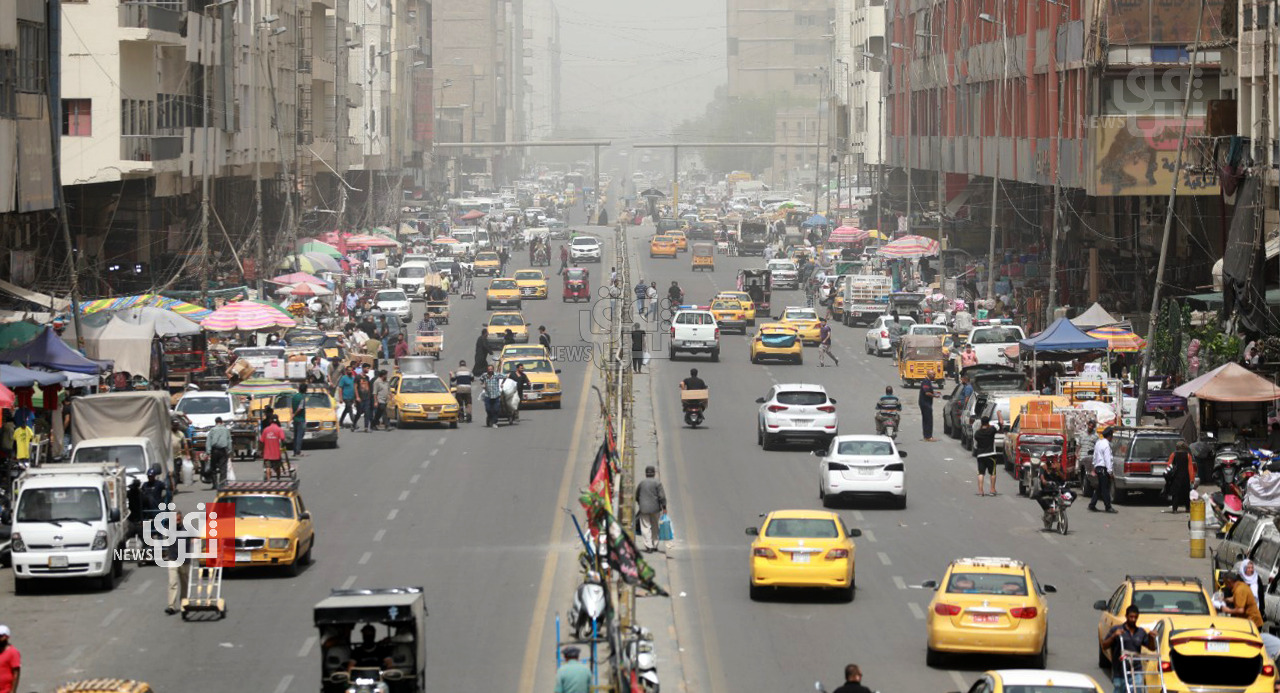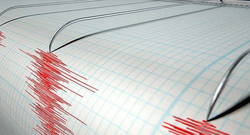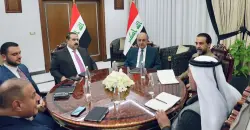Iraq's political crisis: calls for real change and challenges ahead

Shafaq News / As the world watches various elections and the relatively smooth transition of power from one government to another, there are growing doubts and criticisms directed towards the current "Iraqi formula." Iraq, meanwhile, continues to struggle with seemingly never-ending crises, fueling speculation both within and outside of the country about the necessity for "real change" that results in the replacement of the dominant political figures who have been on the scene for two decades.
Despite the creation of numerous programs and plans aimed at addressing Iraq's problems and crises, the country is still viewed as a place where such issues are deeply ingrained, despite the few "celebrations" that occur in European and American research centers and institutes when an electoral process is organized or a new government is formed.
One of the paradoxes of the situation in Iraq is that even major Western institutions that have developed over the past two decades, which called for either supporting the 2003 invasion and removing the dictatorship, or working towards bringing about peaceful change and reform in Iraqi society, have recently become very focused on the flaws in the political, economic, and even security systems in Iraq. They have also raised concerns about the disadvantages and benefits that Iraqis have received from the war and the democratic process centered on the "2005 Constitution," particularly with the 20th anniversary of the Washington-led invasion.
Furthermore, informed political sources have revealed to the Shafaq News Agency that "there is a great international desire to effect real change in the political process in Iraq by changing the current political faces, and this desire has strong support from the United States and the United Kingdom."
This is in line with the sentiments of a significant portion of Iraqis who, in 2019, expressed through a widespread protest movement in many cities and governorates of Iraq their desire to overthrow the ruling political class. They were convinced that the politicians who had dominated the Iraqi scene since the invasion had not done enough to address the issues of the people, from securing electricity, basic services, and creating job opportunities, to maintaining the country's security and sovereignty. These failures were embodied in the collapse of Iraqi security when ISIS swept through the country, or when the Green Zone, which is supposed to be a symbol of security and stability, turned into a battleground for armed factions in the summer of 2022 as the political struggle over the results of the elections and the formation of the government peaked.
According to informed political sources, the work on the international movement to bring about real change in the political process "is being continuously activated, but there is no date for launching this movement on the ground so far."
The same sources further state that "The international movement for change in Iraq came about in light of UN reports and international organizations that revealed the extent of corruption, destruction, and murder inside Iraq over the past years, without any real change by the ruling political class over the past years."
According to the aforementioned sources, there is a lack of optimism regarding al-Sudani's government, and any support for it is merely a protocol measure, particularly as the international community views it as a government of armed factions.
While the formation of al-Sudani's cabinet, the nominee for the Shiite coordination framework, inspired optimism outside of Iraq on an official level, the nation has experienced a general course of political and security developments over the past 20 years, which has raised concerns both inside and outside of Iraq. There was hope that this would result in the establishment of a system that guarantees Iraqi citizens their minimum self-evident rights.
Iraqi politician Samir Obaid believes that "the expected change in Iraq is long delayed because of the strength of the cohesion of the corruption system and the lack of societal unity against corruption due to the scourge of ignorance that the political class consciously devoted during the past 20 years. Change is imminent because the governing political elite has alienated 90% of the Iraqi populace, has been shunned by nations in the area due to its corruption and deceit, and has damaged American credibility in Iraq and throughout the region."
He further adds that "change will not come through the Iraqi streets or military involvement but through the exposure of corrupt individuals who violated human rights and participated in the slaughter of Iraqis. The international community and the UN will also provide assistance in opening key corruption files, with the help of the U.S. Treasury Department and Iraq's neighboring nations."
"This movement will begin soon, and Iraq will get rid of the corrupt and 80% of the ruling political class in 2023," he continued.
Moreover, many specialists, academics, and even former American politicians have discussed the shortcomings of the American failure to deal with the concept of the "day after" that comes after military success. It turned out that it had not adequately prepared for the phase of creating the new state, contenting itself with the quick fix of bolstering the quota system in order to appease the forces and parties, a system whose function has not diminished as of yet.
According to a recent article by Sajjad Jiyad of the Century Foundation, "Regime change was supposed to make Iraq a beacon for the Middle East, but state-building, the way the United States has managed, has certainly been a failure."
As a result, according to political sources, "the political class in Iraq is conducting multiple unannounced meetings with foreign parties in order to avoid it and give them a chance for only two years. However, this opportunity is being refused, and all these events are taking place covertly to avoid negatively impacting Iraq's security or economic situation."
Furthermore, it is surprising that more than six months after taking office, PM al-Sudani has yet to receive an invitation to travel to Washington.
According to sources, "the Kurdistan Region will remain distant from the international movement for change in Iraq in general. However, there will be a push for implementing many reforms while containing corruption, particularly since international support for the region continues at various levels."
Moreover, many experts and researchers have already characterized the Iraqi regime as having turned into a dysfunctional kleptocracy after being ruled by the former dictatorship.
According to experts, the democratic system established by the 2005 constitution, while having contributed to relatively peaceful change processes, was unsuccessful in producing new political elites who believe in the inevitable nature of change. This has led to quotas and other issues, which three years ago led hundreds of thousands of Iraqis to protest. Additionally, a large segment of the Iraqi population is convinced that the ruling class is actively thwarting genuine reforms, consolidating their power and influence through armed militias and the media, and attempting to sway the judiciary and parliament using state funds and the existing corruption system.
Barham Saleh, a former president of Iraq, recently penned an article in the American magazine "Foreign Policy," advocating for radical changes in the government. Saleh emphasized that the system put in place after 2003 has reached its "end" and suggested amending the constitution to create a stronger presidential system. One of the most telling references in Saleh's article is when he discussed the post-2003 regime, stating that it was put in place out of fear, with each Shiite, Kurd, and Sunni component having its own concerns. This has led to the formation of a structurally weak state. Saleh also stated that this system has come to an end and that Iraq needs a new social and political contract as well as a historic pact between the state and society, including amending the 2005 constitution to organize the next 20 years.
The growing perception that Iraq needs profound and drastic change is reflected in Saleh's perspective, as well as the thoughts of several researchers and experts on Iraqi politics. Politician Faiq Sheikh Ali shocked many when he declared that the utmost date for the fall of the current regime in Iraq through an "international team," which he referred to as a "destructive force," would be 2024. This statement caused a lot of discussion and anticipation. Sheikh Ali claimed that after earlier warning against overthrowing Saddam Hussein's dictatorship, he was now doing the same for the current regime.
Sheikh Ali emphasized that the new government that will come into power will be "strong and fierce," but not a dictatorship, and that it "will be destructive and will not have mercy on corrupt politicians." He also highlighted that the role of the religious authority will revert to that of the previous era, and the new regime will not permit Iran or Turkey to meddle in Iraqi affairs. Regarding Muqtada al-Sadr, Faiq Sheikh Ali stated that he will either be impacted by how other politicians will be affected or he will move to the city of Qom to pursue his studies.
Sheikh Ali stressed that it is crucial for "the real sacrificial Tishreen supporters to prepare for the next stage, as they will have a role in the next state." He further stated that the next regime may not be parliamentary, but it will be civilian and not military. Additionally, he advised that the Kurdistan Region should adapt to the coming change.
On the other hand, Iraqi politician Laith Shubbar stated that even though this regime has demonstrated its failure to manage the state, the challenges ahead of it are significant because it does not represent the majority, and there is a significant public that is not convinced of its performance. As of right now, there are no signs of international movement on the subject of change. Shubbar believes that real change starts with the union of national forces that oppose the quota approach. However, change from abroad, if it occurs, which is unlikely, will not be better than the change of 2003.





